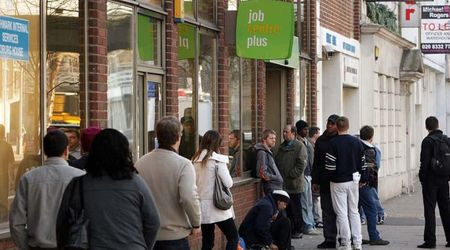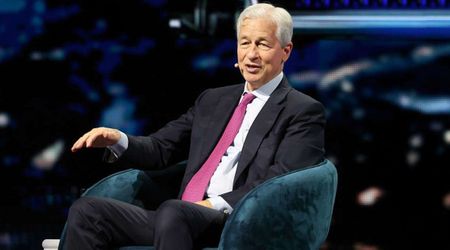Gen Zs are Ditching Remote Work in Favor of Office Cubicles; Here's the Reason Behind it

As the world adapts to the post-pandemic work culture, Gen Z has stood out for its unexpected enthusiasm for the traditional office environment despite some of their grievances becoming social media trends. These young professionals, often characterized by their affinity for digital communication and remote interactions, are increasingly opting to show up at the office instead of appearing as avatars on Zoom calls.

New data from the Bureau of Labor Statistics sheds light on the preferences of Gen Z workers regarding remote work. In February alone, a staggering 91.8% of U.S. workers aged 16 to 24 did not work remotely at all. This figure highlights a notable departure from the remote work patterns observed in older generations during the same period.
Only 3.2% of Gen Z workers opted for full-time remote work, with an additional 4.9% engaging in hybrid arrangements.

Sean Smith, an employment economist at the Bureau of Labor Statistics, contextualizes these findings by stating that many young workers hold service or retail jobs that necessitate physical presence. High school students working part-time jobs or college goers engaged in work-study programs contribute significantly to the non-remote workforce.
Furthermore, the disparity in remote work rates between younger and older members of Gen Z suggests a correlation with educational attainment, as those aged 20 to 24, who are more likely to have completed higher education, exhibit higher rates of remote work.
"These younger people, they just don't have the degrees that will get them those [remote] jobs," Smith says.

Despite the prevalence of jobs requiring in-person attendance among Gen Z, their embrace of the office environment extends beyond mere necessity. Ella Halstead, a senior analyst at Canvas8, attributes this phenomenon to various factors, including the practical need for a dedicated workspace amid constrained living arrangements.
"Not only do offices enable a dedicated workspace—they also offer the chance to make a space your own," she says. "On social media, young workers are also romanticizing the 'adult' experience of in-person work by sharing office fit-checks, cubicle tours, and 'aesthetic' 9-to-5 routines."
Moreover, she emphasized the significance of in-person work for career development, citing the accessibility of learning opportunities and networking advantages inherent in office environments. These sentiments are echoed in a LinkedIn survey revealing that 76% of Gen Z professionals seek more learning opportunities at work, a goal more readily achievable through in-person interaction with colleagues.

Trends such as "work bestie" further enhance the appeal of office environments for Gen Z, offering vital social connections in an era marked by increasing feelings of isolation. "The workplace is one of the few places where Gen Z can get the critical face-to-face connections amid what the U.S Surgeon General is calling a 'loneliness epidemic,'" Halstead explains.
While Gen Z embraces the office with fervor, other generations exhibit contrasting preferences. A FlexJobs report indicates that Gen X and millennials lead the charge in remote work, with significantly higher proportions opting for full-time remote arrangements.
This disparity can be attributed to factors such as career stage, familial responsibilities, and commuting constraints.






















